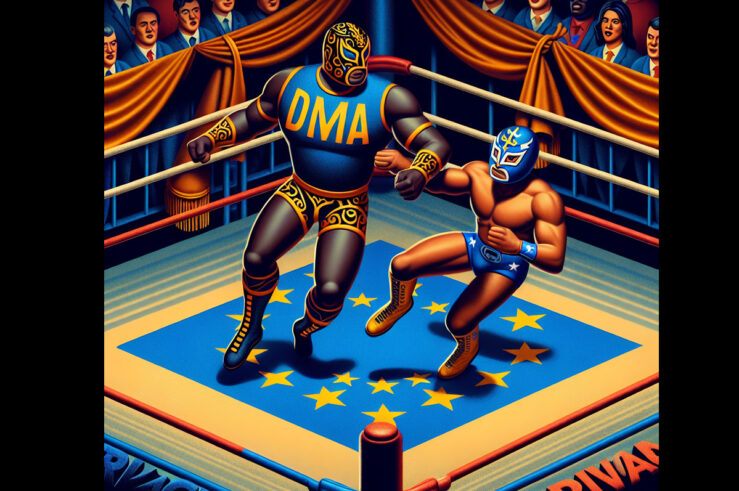Showing results for: “premium natural and organic”
Economies of scale in homeless camp cleanups with some fishy results
“Our City has become a cesspool,” according Portland police union president, Daryl Turner. He was describing efforts to address the city’s large and growing homelessness crisis. Portland Mayor Ted Wheeler defended the city’s approach, noting that every major city, “all the way up and down the west coast, in the Midwest, on the East Coast, ... Economies of scale in homeless camp cleanups with some fishy results
Amazon and Whole Foods, Historically Considered
Viewed from the long history of the evolution of the grocery store, the Amazon-Whole Foods merger made sense as the start of the next stage of that historical process. The combination of increased wealth that is driving the demand for upscale grocery stores, and the corresponding increase in the value of people’s time that is driving the demand for one-stop shopping and various forms of pick-up and delivery, makes clear the potential benefits of this merger. Amazon was already beginning to make a mark in the sale and delivery of the non-perishables and dry goods that upscale groceries tend to have less of. Acquiring Whole Foods gives it a way to expand that into perishables in a very sensible way. We are only beginning to see the synergies that this combination will produce. Its long-term effect on the structure of the grocery business will be significant and highly beneficial for consumers.
What To Make of MHHI? A policy problem
At the heart of the common ownership issue in the current antitrust debate is an empirical measure, the Modified Herfindahl-Hirschmann Index, researchers have used to correlate patterns of common ownership with measures of firm behavior and performance. In an accompanying post, Thom Lambert provides a great summary of just what the MHHI, and more specifically ... What To Make of MHHI? A policy problem
Senator Warner’s retrogressive proposals could lead to arbitrary and capricious interventions that would harm entrepreneurs and consumers
Last week, I objected to Senator Warner relying on the flawed AOL/Time Warner merger conditions as a template for tech regulatory policy, but there is a much deeper problem contained in his proposals. Although he does not explicitly say “big is bad” when discussing competition issues, the thrust of much of what he recommends would ... Senator Warner’s retrogressive proposals could lead to arbitrary and capricious interventions that would harm entrepreneurs and consumers
What Does Murthy v Missouri Mean for Online Speech?
After a lot of anticipation from Supreme Court watchers, the Murthy v. Missouri opinion has finally been released. As the oral argument suggested, standing was the issue for the Court, who in a 6-3 decision written by Justice Amy Coney Barrett ruled that none of the plaintiffs had standing, due to a lack of traceability ... What Does Murthy v Missouri Mean for Online Speech?
Trade Agreements and Restatements as End Runs Around the Rule of Law
The Internet is a modern miracle: from providing all varieties of entertainment, to facilitating life-saving technologies, to keeping us connected with distant loved ones, the scope of the Internet’s contribution to our daily lives is hard to overstate. Moving forward there is undoubtedly much more that we can and will do with the Internet, and ... Trade Agreements and Restatements as End Runs Around the Rule of Law
Pai’s Right on Net Neutrality and Title II
As I explain in my new book, How to Regulate, sound regulation requires thinking like a doctor. When addressing some “disease” that reduces social welfare, policymakers should catalog the available “remedies” for the problem, consider the implementation difficulties and “side effects” of each, and select the remedy that offers the greatest net benefit. If we ... Pai’s Right on Net Neutrality and Title II
The antitrust laws are not some meta-legislation authorizing whatever regulation activists want: Labor market edition
In a recent post at the (appallingly misnamed) ProMarket blog (the blog of the Stigler Center at the University of Chicago Booth School of Business — George Stigler is rolling in his grave…), Marshall Steinbaum keeps alive the hipster-antitrust assertion that lax antitrust enforcement — this time in the labor market — is to blame ... The antitrust laws are not some meta-legislation authorizing whatever regulation activists want: Labor market edition
The Allergan-Mohawk deal: An ingenious strategy to avoid an unbalanced IPR process
Last Friday, drug maker Allergan and the Saint Regis Mohawk Tribe announced that they had reached an agreement under which Allergan assigned the patents on its top-selling drug Restasis to the tribe and, in return, Allergan was given the exclusive license on the Restasis patents so that it can continue producing and distributing the drug. ... The Allergan-Mohawk deal: An ingenious strategy to avoid an unbalanced IPR process
The Marketplace of Ideas: Government Failure Is Worse Than Market Failure When It Comes to Social-Media Misinformation
Today marks the release of a white paper I have been working on for a long time, titled “Knowledge and Decisions in the Information Age: The Law & Economics of Regulating Misinformation on Social-Media Platforms.” In it, I attempt to outline an Austrian law & economics theory of state action under the First Amendment, and ... The Marketplace of Ideas: Government Failure Is Worse Than Market Failure When It Comes to Social-Media Misinformation
Google Previews the Coming Tussle Between GDPR and DMA Article 6(11)
Among the less-discussed requirements of the European Union’s Digital Markets Act (DMA) is the data-sharing obligation created by Article 6(11). This provision requires firms designated under the law as “gatekeepers” to share “ranking, query, click and view data” with third-party online search engines, while ensuring that any personal data is anonymized. Given how restrictively the ... Google Previews the Coming Tussle Between GDPR and DMA Article 6(11)
The DOJ’s Antitrust Case Against Google: A Tough Slog, but Maybe an Intriguing Possibility?
The U.S. Department of Justice’s (DOJ) antitrust case against Google, which was filed in October 2020, will be a tough slog.[1] It is an alleged monopolization (Sherman Act, Sec. 2) case; and monopolization cases are always a tough slog. In this brief essay I will lay out some of the issues in the case and raise ... The DOJ’s Antitrust Case Against Google: A Tough Slog, but Maybe an Intriguing Possibility?









